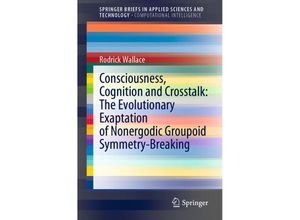This book makes application to the dynamics of arousal and distraction and to other examples.
A modified version of the Kadanoff picture of phase transitions in consciousness emerges from
the Morse Function itself in a surprisingly standard manner closely associated with the
breaking of groupoid symmetries driven by fundamental equivalence class algebras. Although this
is far indeed from the familiar world of physical theory it should be possible on the basis
of the probability models developed in the book to develop new statistical tools for the
analysis of observational and empirical data regarding cognition and consciousness.

